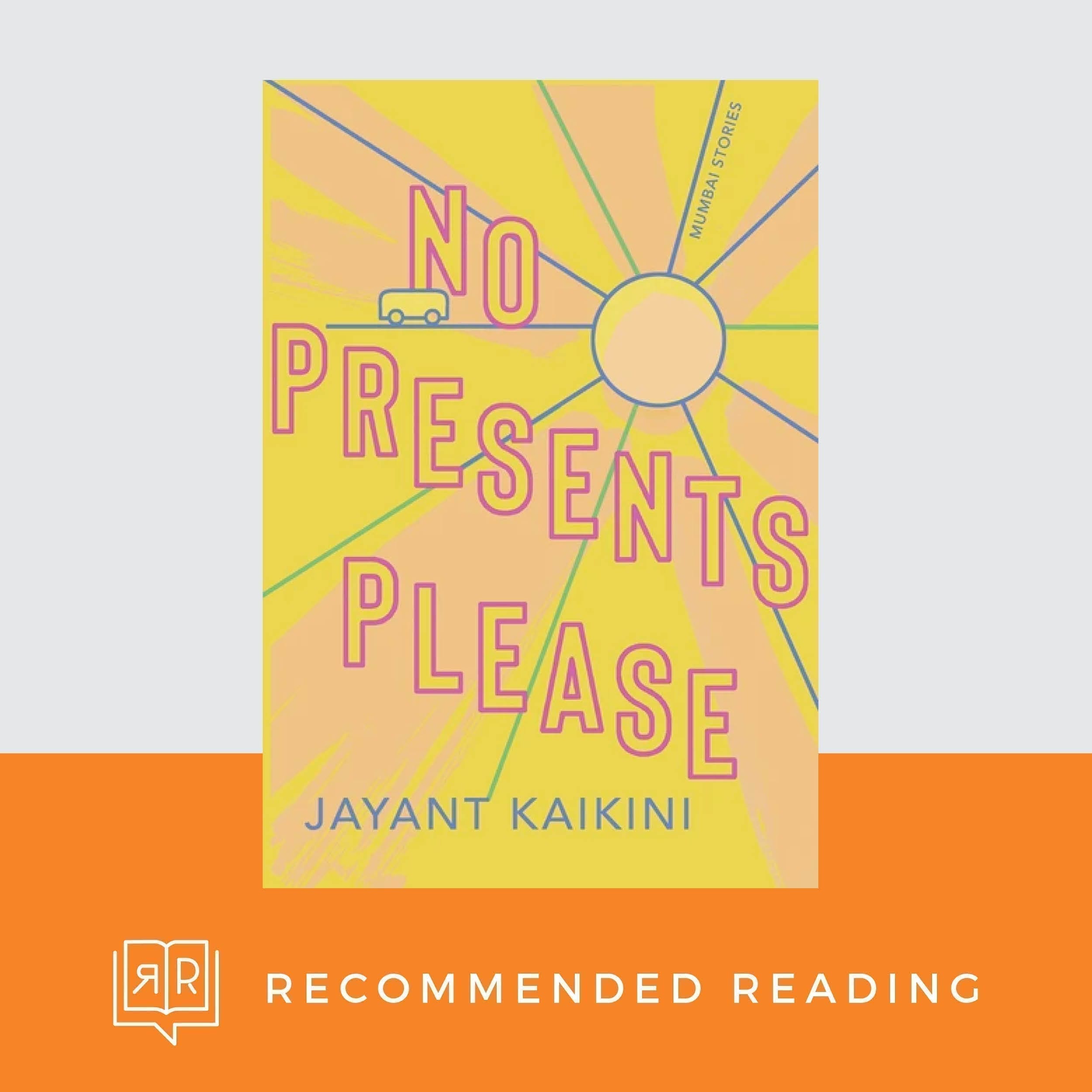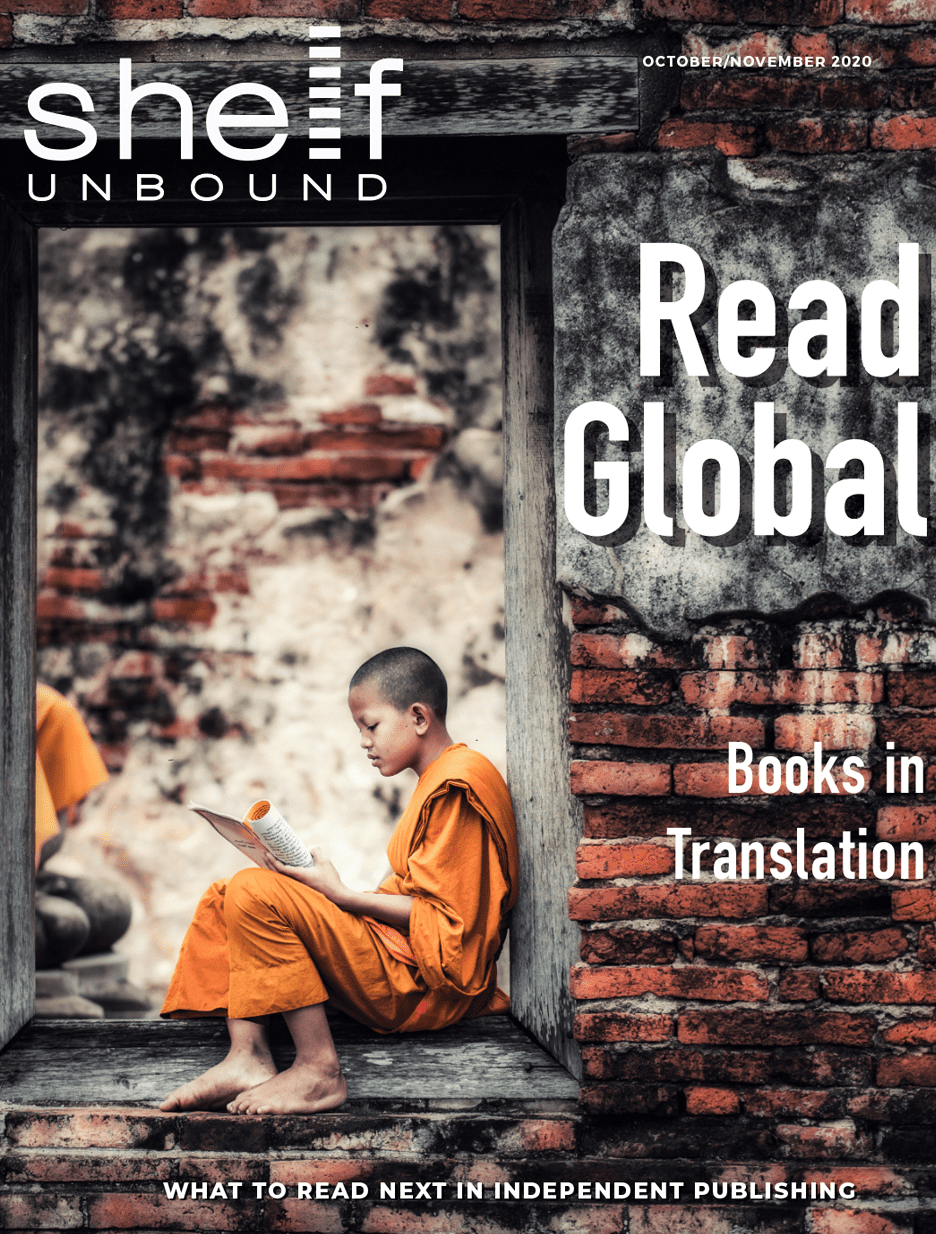Interview: Jayant Kaikini, Author of short story No Presents Please
 Earlier this year, in July, Indian writer and poet Jayant Kaikini published his first book in the US, No Presents Please: Mumbai Stories (Catapult Press).
Earlier this year, in July, Indian writer and poet Jayant Kaikini published his first book in the US, No Presents Please: Mumbai Stories (Catapult Press).
Translated from Kannada by Tejaswini Niranjana, this collection introduces compelling and memorable small-town migrants working to build a life in the big city of Mumbai. Kaikini spoke with Shelf Unbound about the complimentary natures of science and art, his interest in a wide range of forms and formats, and his interest in writing about Mumbai.
You’re a trained biochemist who worked in pharmaceuticals for 20 years. How and when did your career as an artist and writer begin?
JK: I started reading and writing in my teens, long before I became a biochemist. Poems happened to me like pimples! I published my first book of poems when I was 19. Science is an art and art is a science; both are deeply involved in understanding the plight of a human being, so they are mutually complimentary. Literature or art is like an electro-cardiogram of our times and society.
You’re a poet, short story writer, columnist, and playwright, as well as a lyricist, script and dialogue writer. Do you find yourself drawn more strongly to a certain form of storytelling? Or, does one come more naturally?
JK: Each form has its own restlessness and secret silence. Forms are very unique to the experiences they are trying to understand or evoke or create. I am not talking about the craft or skill part of it, but the experience that is created, so I relish every form. Life has no structure, no form. It is non-literary! It just flows. It is we who try to give a structure to it to make sense of it for ourselves. Each story or poem is like a window. Purpose is about opening it to a light breeze and a view beyond. Each story has its own body and soul. The shape of the fish is hydrodynamically designed for swimming. The shape of the bird is aerodynamically designed for flying. In the same way, the form of each story is designed by its soul. I don’t search for subjects or stories or characters; it’s the other way around. They are in search of me. I must get lost so that they can find me.
This is your first volume of selected stories and the first time you’ve been published in North America. What do you hope for this collection as it reaches readers?
JK: It’s always exciting to reach new readers in new spaces. Each new reader with his own sensibility breathes into the book, giving a new life to the characters and situations… Isn’t it a heartening cultural osmosis?
Why did you choose to focus this collection specifically on Mumbai and its people?
JK: Mumbai is a hardworking city that has evolved into a liberating, nonjudgmental, collective mind. This city has transcended all man-made class, caste, creed, religious, gender, and linguistic barriers by sheer hard work. Mumbai by default is a spiritual space because of its minimalistic living conditions. No physical or mental space for frills, flab, or extra baggage. This non-fussy city speaks in a language that is a leveler. It never uses respectful plural, which is used in other Indian languages. Only Mumbai allows my characters or situations to be what they are. In a way, this bunch of stories reflects the collective mind of Mumbai.
How involved were you in the process of translating the collection? How would you describe your relationship with your translator?
JK: Tejaswini Niranjana, who has translated these stories, has been a dear friend for five decades. And she too lived in Mumbai and loves the place. We jointly decided which 16 stories would be picked from my five Kannada anthologies that have been published in the last four decades. Maybe we met once to discuss retaining typical Mumbai multilingual expressions like “khalaas” or “khaalipeeli”. Other than this, there was no involvement from my side in the translation process at all. That’s why the book is what it is. I feel translation is always safest in the hands of a poet because a poet is well tuned to the unsaid. Tejaswini is a fine English poet who published her debut poetry book as a teenager!
Are there authors or artists that you feel have influenced your work?
JK: My father Gourish Kaikini (1912-2002), a radical humanist, schoolteacher, and writer, has influenced me deeply. He was fond of music, theatre, science, philosophy, art, and literature. We had good collections of books at home. The modernist movement in Kannada literature was naturally dear to my growing mind and Kannada writers like Yashwant Chittal, Tejaswi, A.K. Ramanujan, Khaasnees, Shantinath Desai, K.V. Tirumalesh, filmmakers like Satyajit Ray, Aravindan, and theatre directors like Satyadev Dubey and Badal Sarcar have enriched my sensibility and restlessness.
About The Author
Jayant Kaikini is a Kannada poet, short story writer, columnist, and playwright, as well as an award-winning lyricist and script and dialogue writer for Kannada films. He won his first Karnataka Sahitya Akademi Award at the age of nineteen in 1974 and has since won the award three times, in addition to winning various other awards in India, including the first Kusumagraj Rashtriya Bhasha Sahitya Puraskar. No Presents Please, his volume of selected stories, is the first book in translation to have won the DSC Prize for South Asian Literature.

[cm_page_title title=”Continue Reading” subtitle=” Shelf Unbound”]
Article originally Published in the October/November 2020 Issue: Read Global.
